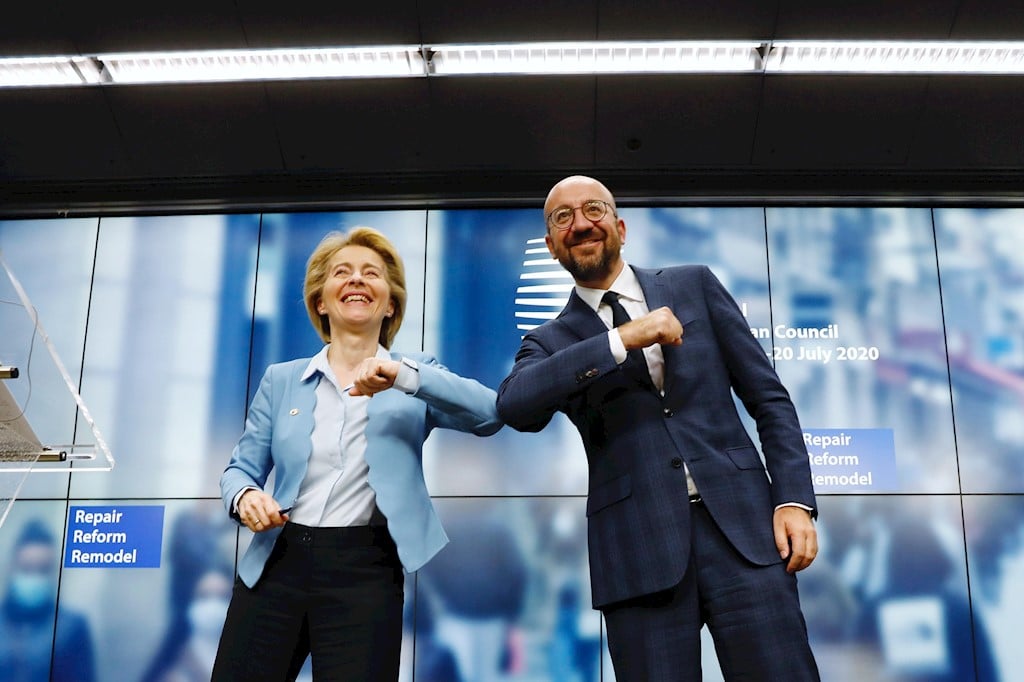Ingolf Pernice (Humboldt University)
The Special European Council of June 17-21 reached an agreement of a historic dimension: four days of negotiation produced a break-through that would have been unthinkable before the Corona crisis. Beyond the Multiannual Financial Framework the “Next Generation EU (NGEU)” was adopted. The hopeless debate on Eurobonds is over. Although called “an extraordinary recovery effort” it must be welcomed not only as a demonstration of solidarity but also for its potential to work as a laboratory for preparing the upcoming reform towards a more coherent and democratic Union.
It is not the – incredible – amount of money involved, and it is not only that the Summit of the 27 could come to an agreement at all, more important for the long-term development of the EU is that the European Council has broken with some fundamental taboos:
- The idea that the EU would not take on debts for financing its budget. – As Articles 311 and 312 (1) seem to indicate, the EU budget is financed by “own resources” only, and some doubts exist if debts may be added as a new “own resource”. Would debts not rather be external resources? What is the legal basis for taking debts if this is true?
- The practice that assistance to Member States which are in financial difficulties is provided in the form of loans to be repaid within a certain period, not of grants. While direct EU financing of national projects is possible within the limits of the structural funds, the amount envisaged for redistribution by the Recovery fund is of an unprecedented dimension.
- Economic and financial policies are basically a matter of the Member States; only their coordination – even if strengthened after the financial crisis – was entrusted to the EU. The system of criteria for the allocation of the grants to be established by the Commission and the governance rules laid down for the implementation of the programme represents, in nuce, kind of a European economic and financial policy.
- Taxation at EU level was excluded, so far, from the system of EU own resources. The „new plastic levy“ to be introduced in 2021, and other European levies and taxes envisaged to be introduced in the following years as new categories of own resources with a view to allow early repayment of NGEU borrowing, signal a substantial change of the system.
While the conclusions of the European Council’s special meeting of July 2020 seem to a pragmatic response to the Challenges of the Corona crisis, and some legal issues will need a closer look, the agreement of the 27 Member States is a historic break-through. The new instruments may be used as a laboratory for the development of a more democratic and solidal financial structure of the EU. Their introduction is carried by a spirit of solidarity and responsibility. In spite of many initial hesitations and reservations mainly among the “frugal states” the European idea has finally won. Would this have been possible for the EU without the Brexit?
Now, the road is open not only for a determined and well organised economic recovery in accordance with the requirements of climate objectives, the green deal and the innovative dynamics of digitisation throughout the EU. An ambitious reform of the EU bringing it closer to its citizens and enhancing cohesion and solidarity among people, not only among states has now become a realistic utopia. It is time for the Union citizens to take ownership of the Union and actively participate in the framing of its constitutional setting so to make it a prosperous and resilient political home as well as a strong partner for the constitution of a fair and sustainable global order based upon the worldwide recognition of human dignity.
Ingolf Pernice is Professor of Constitutional Law at Humboldt University
Image credit: European Council


